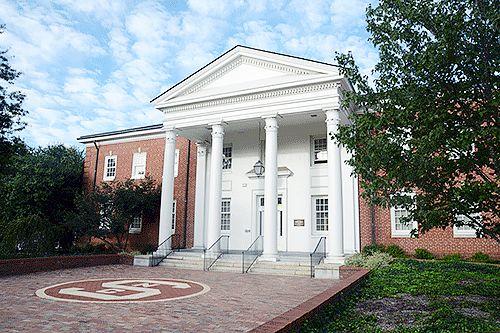After the 2011 Dear Colleague Letter on sexual violence was rescinded in September, NC State’s Office for Institutional Equity and Diversity (OIED) has tried to continue adhering to the previous required time frame for student sexual assault case investigations.
The Department of Education’s rescindment of the Dear Colleague Letter created under the Obama administration has resulted in the inability to demand that university sexual assault case investigations be restricted to a specific time frame.
These guidelines stated how schools and universities should handle sexual assault cases under the Title IX law. Robinette Kelley, associate vice provost for equal opportunity and equity and deputy Title IX coordinator at OIED, discussed how the office has been handling student sexual assault investigations since September and how it is trying to stick to the previous investigation time frame for students.
“Once we get a report, we reach out to the survivor with resources and information, and we offer them an opportunity to come in and meet with us,” Kelley said. “We provide additional information and resources to have a discussion and see if there’s anything they need or we can do for them. … We talk about the investigation and complaint process.
Kelley explained that after a student decides to proceed with a case, the office takes statements of the complainant, potential witnesses and the respondent, or accused student. This information, along with any evidence is compiled into an investigatory report, which according to Kelley, can contribute to surpassing the 60-day time frame OIED plans to stick to.
“We’re doing investigatory reports and then have this process where we allow each of the parties to look at the report,” Kelley said. “I think there’s a lack of understanding of the time that it takes to do the report.”
The investigations were previously done by the Office of Student Conduct until this past summer and were then transferred to OIED, along with the addition of the investigatory reports.
According to Kelley, there are contributing factors that can prolong the investigation process for OIED, like willingness of witnesses to participate, conflicting schedules and communicating with students’ attorneys.
“We try to meet that 60-day time frame, but there are circumstances that prevent us from doing so,” Kelley said. “Sometimes people are not willing to participate or cooperate with an investigation. It may take a number of outreaches and then sometimes people never come in, especially potential witnesses or individuals that have relevant information. They may not want to participate. We can’t really compel witnesses to come forward to us and so that can hinder our time frames.”
Unlike OIED, NC State’s Office of Student Conduct time frames were not affected by the rescindment of the 2011 Dear Colleague Letter. Student Conduct handles sexual assault case hearings after OIED submits its investigatory report and is bound to a specific policy for completing its processes.
“We have a 30-day time frame in which we need to issue charges,” said Thomas Hardiman, the director of Student Conduct. “We need to formally charge a student within 30 days of receiving that report. From there, we work and we have to provide them at least 10 days’ notice prior to a hearing.”
Hardiman said that the guidelines and processes for hearings and subsequent sanctions are the same for all accused students.
“For all students at NC State, we follow this guideline,” Hardiman said. “For Title IX, there’s just specific rights under federal law that complainants have broader access to. [Students] have the ability to be present. They have the ability to have an attorney or a non-attorney advocate with them as well and the right to be able to make an impact statement.”
Lisa LaBarbera-Mascote, director of the NC State Women’s Center, said that the office is continually supporting survivors of sexual assault throughout OIED investigations and Student Conduct hearings.
“Our primary role is to serve as an advocate for students,” LaBarbera-Mascote said. “Any way we can get the message out as broadly as possible that we are here to provide emotional support, be someone on campus that can go with a survivor to their Title IX meeting, to a Student Conduct process … to help them navigate any of the different steps or needs that they might have throughout their entire healing process.”
According to Kelley and Hardiman, neither OIED nor Student Conduct stops normal processes when the academic school year is over or on break. Kelley said she recognizes that students can become frustrated with the long process.
“Can we do better as far as time frame? I do. I definitely think so,” Kelley said. “Anybody could be frustrated if they don’t understand the time it takes to complete the investigation.There may be times where we go outside of the time frame to complete something…. We are trying to get it done as fast as we can.”
Students are able to file a report on OIED’s Title IX website or visit the office located in 231 Winslow Hall.








